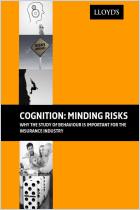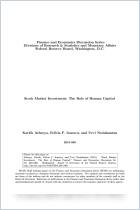
Recommendation
Academics Dietmar Fehr and Yannick Reichlin explore the connection between people’s perception of their financial status and their willingness to take risks. Clearly, psychology plays a role, and different individuals will assess their odds in different ways, but the results of this research on relative economic standing could add to the toolkit leaders use to address income inequality. Scholars and financial professionals interested in how people’s beliefs about their social positions influence their economic behavior will find valuable insights in this authoritative report.
Summary
About the Authors
Dietmar Fehr is a professor at Heidelberg University in Germany, and Yannick Reichlin is a researcher at the European University Institute in Italy.

















Comment on this summary or Start Discussion